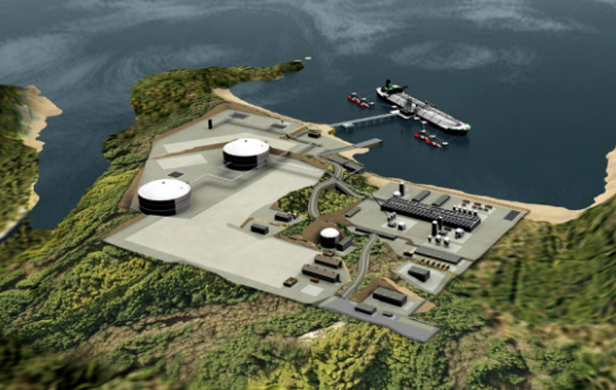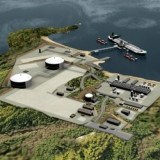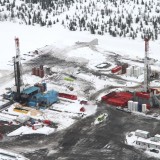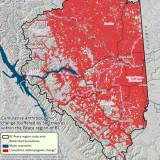
The famous bordello keeper of the 20s, Texas Guinan, used to greet her “guests” with, “Hello suckers!”
Texas Guinan has her presence today in the form of BC’s Finance Minister Mike de Jong.
First we must understand some underlying facts about BC finances.
A balanced budget – your style and mine – has us forecasting revenues and expenses accurately, including everything, not something to be pushed at a banker after a three martini lunch. If you don’t include everything you’ll have to borrow money when the car breaks down.
You and I know that if we don’t include everything, we’re just fooling ourselves. Well, folks, there’s no gentle way to put it. We have been played for fools and I’m only going to deal with three headings and leave the deep analysis to economists.
Robbing Peter to Pay Paul
We are selling off some $800 million of Crown assets. This is like you and me selling our homes and using the revenue to balance our current budget. Using money from capital assets, you and I would say, doesn’t belong in our family’s budget because it simply isn’t proper revenue any more than selling off the family jewels is proper revenue.
Governments make up their own rules, of course, and some things that ought not to be are in the annual budget, while other things that ought to be there are missing.
Private Power Rip-off
Take BC Hydro – in fact, take it before General Electric takes it if the Liberal government is, God forbid, re-elected.
Under this government, BC Hydro, which used to pay us taxpayers hundreds of millions per year from its operating profits, is now essentially bankrupt, though not yet formalized. It will be sold with a Liberal victory in May.
No government would do such a thing?
Can you say BC Ferries? Can you say BC Rail?
Since the Liberals embarked on their deliberate plan to bankrupt BC Hydro, our crown jewel has seen its debt and contractual obligations rise to about $80 BILLION.
How has this happened?
Much of it comes from the sweetheart contracts BC Hydro is forced to give Independent Power Producers (IPPs). These contracts cost the public as high as five times the market rate for power and have pushed Hydro into an annual deficit position.
The trouble in dealing with this is it’s difficult if not impossible to believe.
Well believe it. Mair’s Axiom #1 prevails: “You make a serious mistake assuming that people in charge know what the hell they are doing.”
Now, if your family business started to lose big bucks and you decided to pump money from your family’s other sources of income into it, you would certainly show that in your budget. The Liberal government hasn’t told you about that.
LNG Pipe Dream
Finally, let’s take a look at projected income, particularly from Liquified Natural Gas (LNG), which is to be our fiscal saviour. Indeed, according to Premier Clark, we’ll be rolling in dough with this money!
Mr. de Jong perhaps hasn’t noticed that suddenly – and it has been sudden – the world is awash in natural gas. In the time I’ve been talking about it, our obvious major client, China, has discovered massive shale gas reserves of its own.
Believe it or not, it gets worse.
The Canadian Association of Petroleum Producers has made it clear that unless the BC government and the federal government agree to give 30% capital cost allowances – meaning they want a 30% subsidy on the money spent building facilities, like what happens in Australia – then thanks but no thanks to this LNG scheme.
A glance at the Australia experience shows that at the end of the day, the taxpayer ends up footing a big portion of the construction costs to serve a world that doesn’t want their product.
Here’s what one BC political blog had to say on the matter, comparing the LNG issue to our experience with private power:
…LNG exporters are just like our IPP run of river companies, who did nothing, built nothing, acted only on their own behalf, and laid out no money to build 1 kilowatt of power without 30 and 40 year guaranteed contracts, contracts that Gordon the thief Campbell was more than willing to sign. IPPs did not take one single risk, we, the taxpayers, the BC Hydro ratepayers were ripped off…
There are no LNG facilities built as yet, nor will there be unless government pays their capital costs and even then I predict we’ll never see a single plant, let alone the 5 or more proposed.
Christy Clark’s vaunted “Prosperity Fund” will never receive one penny.
The Speech from the Throne and the Prosperity Fund – and the Budget – are barnyard droppings and Premier Clark is trusting that a disreputable, ongoing lie will fool the public.
Hello suckers!








